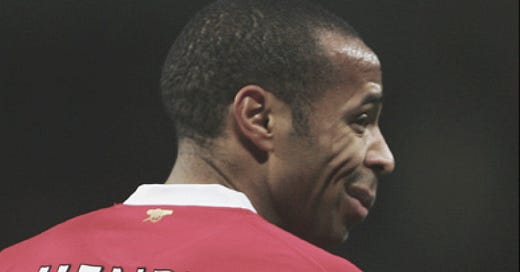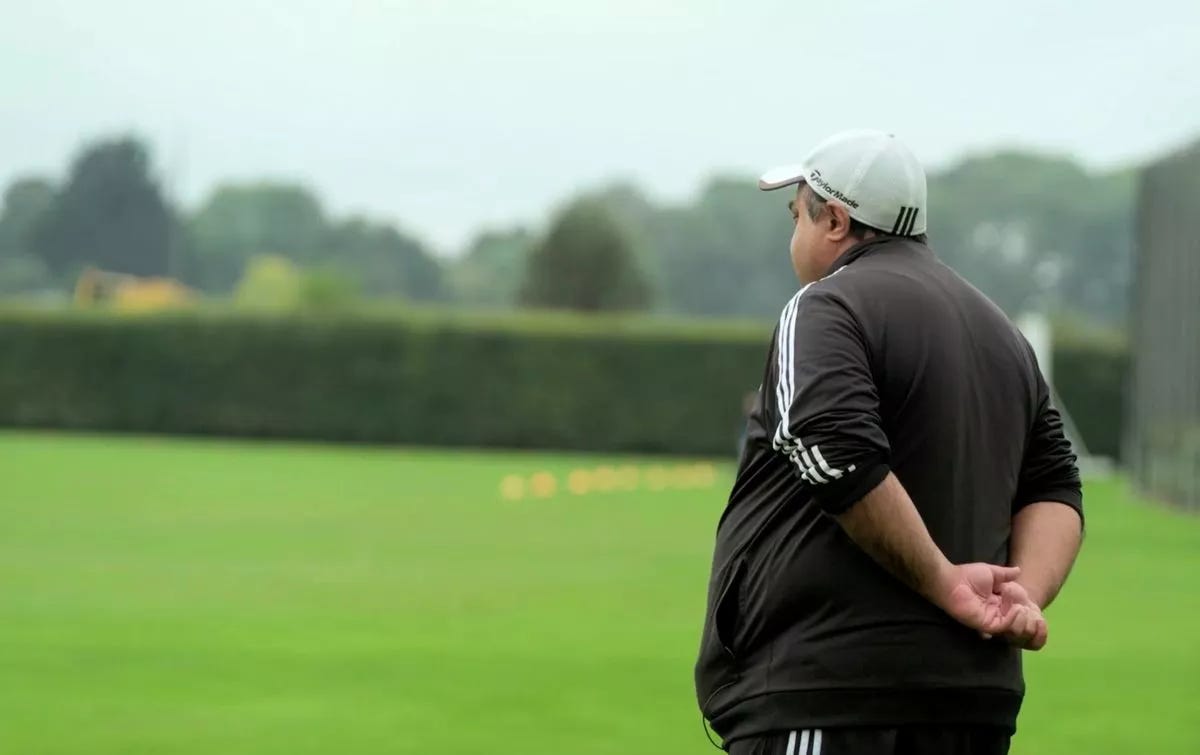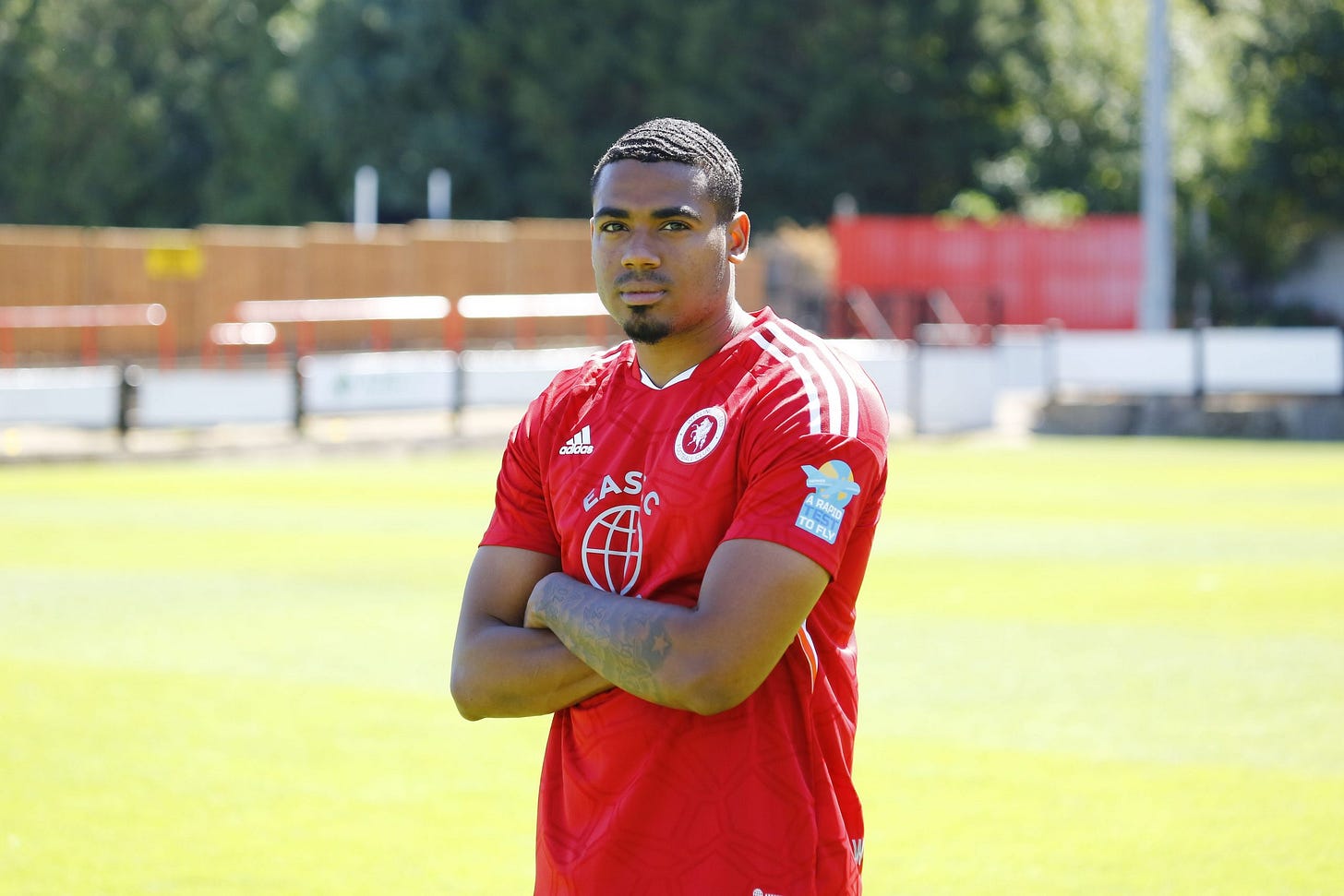“From a young age I was programmed to succeed”. “Dad helped the athlete, but not the human”. “There was no time to be a child, the life of a young player is totally different”. These were the words of footballing legend Thierry Henry in a recent interview with Steve Bartlett on his widely acclaimed ‘The Diary Of A CEO’ Podcast. Henry went into depth on his childhood experience of how a need to seek approval from his Dad, led to him wanting to please everyone else, and how this transpired into an identity crisis throughout many years of his life.
Already a widely explored discussion, the impact of mental health on young footballers, in particular male footballers, brings to the fore the question of if we currently operate a sustainable footballing system. Henry’s in depth interview provided a new angle to the conversation. The Arsenal and French legend recounts how patterns of living planted in his younger years, have grown with him and created a man with many unresolved problems. Henry’s interview debunks the perspective that if a footballer is successful, the method to success isn’t important. However, Henry’s transparent interview taught us that despite his accolades, success doesn’t absolve you of mental issues. It is a well known fact that the single biggest cause of suicide for men under the age of 45 is suicide. Henry’s interview represents a man and many other men who have almost been broken by mental battles they have fought for years. What speaks volume is that Henry believed he had to face this battle in silence. He wasn’t privy to the benefits of speaking about his issues with people around him. He seemed fine and successful externally but was fading away internally.
Despite the potential success, the dream of becoming a footballer can often come at a detrimental mental cost. In an industry where many young kids dream and less than 1% make it. An important question therefore arises, Given the mental turmoil that seems to accompany the role of a young footballer, is the cost worth it, and is the cost necessary?
Ideally, a culture where young people are not suffocated by the pressure of success would be created, but is this a realistic goal?
Source: Sport Bible/ YouTube/ Diary of a CEO podcast
The appeal of footballer and life of a young baller
“If I knew I wanted to make my Dad happy, it would be through football”.
For many reasons, football is a unique sport. It is the sport the majority of young people dream of playing professionally one day. But it is also a sport where very few make it. It is also a sport that creates the opportunity to create generational wealth. Therefore, as alluded to by Henry, the pressure on young kids to make it, can begin from the day you’re born. Therefore, the potential to create wealth blended with the minimal success rate are ingredients that can breed toxic environments where kids are inundated with pressure to succeed. In the interview, Henry highlighted how it was his Dad’s dream for him to become a footballer. Henry painted a picture of how his validation as a person came from football.
Henry further shared a very interesting story that underpins his experience growing up. At the age of 15, he scored 6 goals in a 6-0 victory, which would suggest a successful game. However, post match, a young Thierry was met by criticism from his Dad who highlighted all of his faults. This contributed to Henry’s appetite to seek approval from others and fast forward to his playing career, even when on the scoresheet, his smile was often absent. He always felt like he had something to prove.
The pressure starts from young
“We’ve invested everything into this”- Shy’s Dad, Mo
The pressure of pleasing parents is an all too common narrative. Parents often have to sacrifice their time and sometimes dreams to best equip their child with the opportunity to succeed in the cutthroat footballing pyramid, and can therefore live vicariously through their child, which can give birth to many problems. At the end of 2022, Channel 4 recently documented the behind the scenes at the Crystal Palace academy. Viewers received an insight to U11 player, Shy and his father, Mo. Shy described his father as a second manager at times. He would often bark instructions from the side line and critique every aspect of the game. It got to a stage where academy managers determined that Shy father’s presence was counterproductive to Shy’s development and asked him to step away from attending training and games. A similar course of action was described by Henry as he mentions actively having to distance himself from the pressure of pleasing his Dad.
Compared to children their age, young footballers face abnormal pressures. They constantly have to prove themselves or risk becoming ‘worthless’. The pressure from their closest ones can often be counterproductive and change needs to occur otherwise more young footballers will find themselves in an identity crisis.
“He’s like the second manager”- Shy. Source: Channel 4
The other end of the footballing pyramid
“would you put your son into a professional academy at a young age?” This was a question asked by Love Island star and ex professional footballer Tyrique Hyde who recently opened up about his footballing journey and the various challenges he faced in an interview on the Rising Ballers YouTube channel.
Similar to Henry, Hyde details how from a young age, there was a pressure to perform. He then contrasted his footballing exploits with a job he got outside of football in a special needs school during the Covid-19 pandemic. He loved the job, because for the first time ever, there was no pressure to perform.
Despite having his Dad – Micah Hyde, who played in the Premier League for Watford in the 90s, as his coach at a stage in his career, Tyrique loved the support he received from his parents. Although he admitted that he made some mistakes that may have caused him to not have been playing at a higher level, he explained how depression coincided with getting injured. At the time, he felt as if his career was over.
The footballing bubble often creates this illusion that you are defined by your footballing success, but this is a mentality that many years down the line can leave a lot of young players stranded. Hyde further explained how when without a club, he had nothing to do. Hyde’s response to his question – “would you put your son into a professional academy at a young age?” was very insightful. Tyrique’s answer was “no” and he was adamant in his belief that below u14/15 you should “let your daughter/son enjoy the game, play for freedom and play for fun”.
Source: Lewesfc.com
The ultimate dream but at what cost?
“I wanted people to know how I felt, but also I also told myself that couldn’t let people know” – Thierry Henry
So is the mental cost of chasing your dream an inevitable component of success? What is consistent from young Shy, to Tyrique, to Thierry Henry is that they faced abnormal amounts of pressure from a young age that affected their mental health.
One of the aims of this article is to shine a light on the depths of the mental pressure young people face and to emphasise to young people progressing through the ranks with a dream that you are not defined by your profession. What we have learnt from the aforementioned experiences is that the mental issues the young footballers can face stick with them throughout their lives. We have also learned that mental health issues do not discriminate. Success ultimately doesn’t fix how you feel on the inside.
Some will say that it costs to be successful. And that this is the cost you have to take on if you really want to live the dream. They say that footballers have more money than everyone else, so why are they sad? But the Henry interview was eye opening. Firstly, Henry explained a well known fact that only a select few make it to the top level, leaving many others discarded and cast to the side. Secondly, despite his success, Henry describes how for many years, he was unhappy and was “not allowed to be a human”. He only felt what it was like to be loved after his playing career ended.
On one hand, the life of a young footballer is an often lonely one. It is clear that unbearable pressure and depression within young footballers is an all too common narrative that needs to be rectified. As a child, you aren’t allowed to live a normal childhood, or you risk falling behind. From a young age, you’re thrown into a cutthroat industry. An industry that can create generational wealth, but also an industry that has failed many young men in society.
On the other hand, the threat of potential mental trouble shouldn’t detract young footballers from chasing their dream. Tyrique Hyde’s experience displayed how valuable a support system can be for your mental health. The benefits of becoming successful in football are undeniable. Pressure in such an elite industry is undeniable. But if properly managed, pressure doesn’t need to crush children during their childhood.
The purpose of this article isn’t to discourage the younger generation from chasing their dream, it is to make aware the potential problems of chasing the dream in the wrong way, to make aware of how mental health issues are prevalent in footballers, and to make aware that endless stories of depression do not need to continue. Highlighting these facts should invoke a call to change. More needs to be done to protect the mental health of our young kids. The reality of chasing the dream shouldn’t be long lasting internal pain.
There are two sides to a story
“The mentality I was taught allowed me to be successful in the future” – Thierry Henry.
So a number of facts have been established. The game of football is a game full of pressure. Many have mentally suffered and still suffer from the pressure. But, a good support system can help alleviate the mental challenges. In such an elite sport where few make it, pressure is inevitable.
So given all the facts of the matter, is the dream worth chasing?








